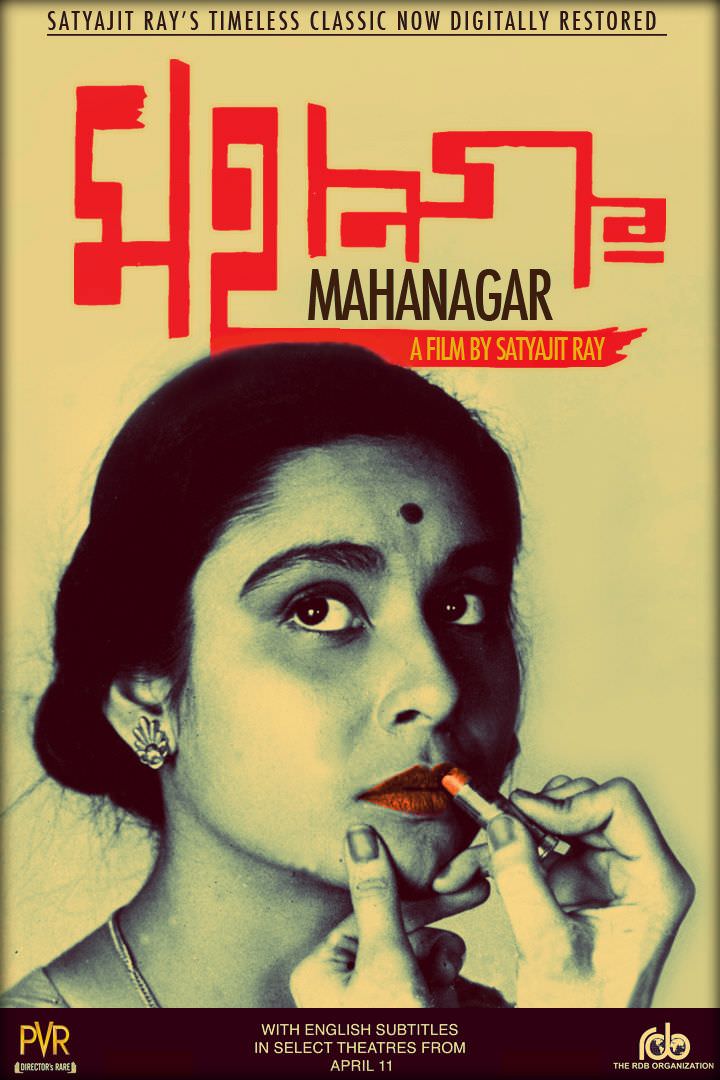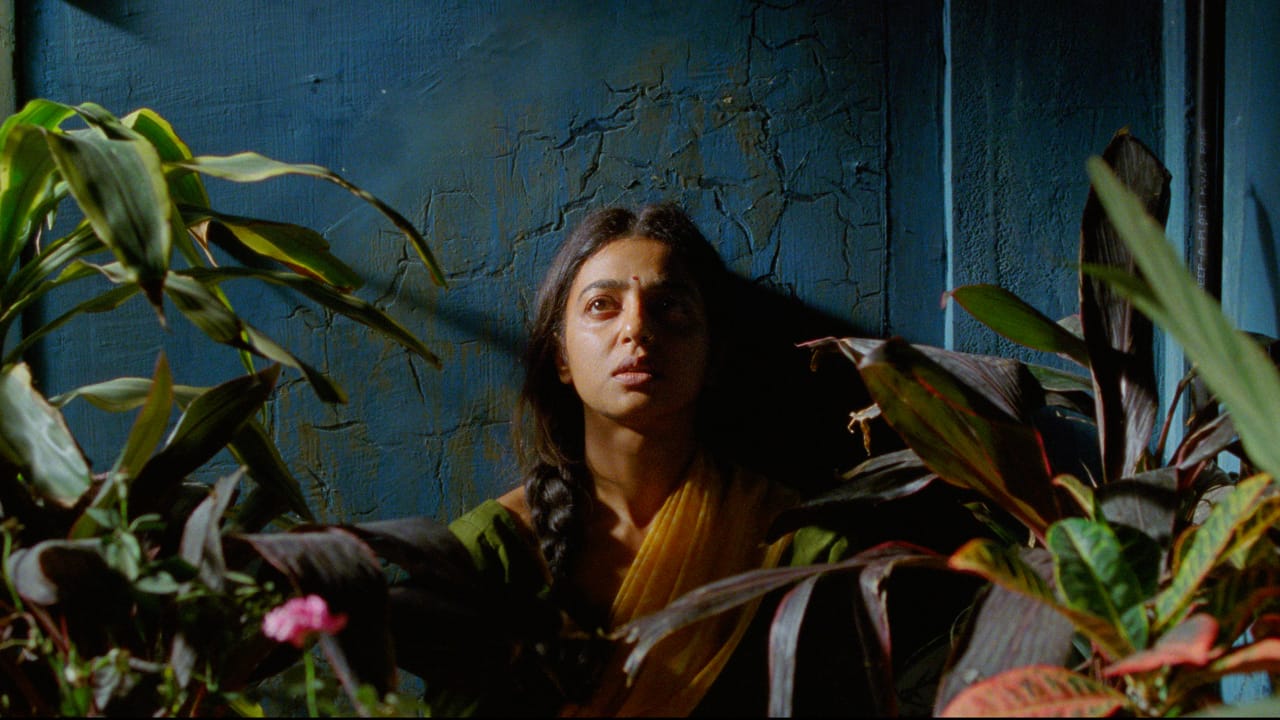As a Bengali living in Kolkata for most of my life, discussions around films, culture, food and society at large have not been a conscious effort but rather a lifestyle. Bengali people are infamous for their laziness and their addas (informal discussion). Taking part in addas requires a lot of effort because then you have to watch films, read books, keep a track on politics and what not! For all Bong kids, the metamorphosis stage of becoming a butterfly from a silkworm is during college. College teaches you what you want, like and dislike in life, in other words you build your ‘taste‘ when in college.
While Satyajit Ray, notoriously known as the ‘Renaissance Man‘ of Bengal is one of the gods that Bengali film buffs worship, he isn’t as popular in mainstream India (sigh!). Although I generally shy away from watching Bengali movies, Ray’s films had been quite attractive to me since childhood, because of course, Feluda! Feluda, the super sleuth, a fictional character who had been created by Ray himself, was an integral part of my childhood and inspired many aspiring detectives like me. It was only in college though, while discussing detectives with my friends, I realised that Feluda was extremely chauvinistic and Ray’s portrayal of him was very chauvinistic.
After this realisation, I had to see some other films of Ray which were so called ‘iconic‘, I just couldn’t let my hopes of Ray the progressive director, die off so easily! So I surfed on the internet and came upon this gold mine torrent (they weren’t illegal back then), which consisted all of Ray’s films. Instant download and bated breath throughout an entire week followed along with patient anticipation. Finally when I had the films, I randomly chose the selected Mahanagar, which later came on to be my favourite Ray film.
it marks the transformation of the middle class ‘house wife‘ to a working woman.
Mahanagar is based on Abataranika, a novel by Narendranath Mitra narrating the story of a housewife who sheds her traditionalist family by getting a job as a saleswoman and hence breaking a number of gender roles. The film is completely set in Calcutta and Ray through his lens portrays the daily rituals and habits of a ‘moddhyobitto’ or middle class, upper caste Bengali family, for whom honour is the trophy that they hold close to their heart.
Also Read: Ghare-Baire: Bimala’s Transgression Of Boundaries Between The Home And The World
The reason the film is my favourite and why I hold it so close to my heart is because it marks the transformation of the middle class ‘house wife‘ to a working woman. It normalises the public domain for women thereby allowing the middle class woman to break the victorian morality that the bengalis hold so close to their heart.
Arati (Madhabi Mukherjee) is a doting housewife taking care of her in-laws and her young sister-in-law (Jaya Bhaduri). She abides by her husbands moralities and does not question them as has been imbibed by her from her upbringing. But trouble starts when rising cost of living affects the couple and their family. So much so that even tea leaves have to be borrowed from the neighbour for serving tea, a basic necessity in all Indian households! Arati now cannot tolerate the pain and the destitution of her family and has to take up matters in her hands.
So what does she do? She takes up a job! The exclamation mark is a necessity here given the fact that a ghorowa (homely) wife at that time did not dare step outside her household without the permission of her husband or her in laws. But Arati’s love for her family and duty as the wife, forces her to break the domestic mould of the household and earn an income, quite similar to her husband. The brilliance of the film is in Ray’s portrayal of the middle class bengali community of the ’60s. The ’60s were turbulent times, with communism knocking at the doors of the state, the ’60s saw a radical change that was brought forth on the bengali middle class.
The nuances through which Ray captures the morality of the middle class, thereby critiquing it, is what makes this film revolutionary. As Arati’s husband (Anil Chatterjee) says in the film ‘a woman’s place is in the home‘, she is supposed to look after the happiness and the needs of the husband, the in-laws, her son and her sister-in-law. Her turn for self care and happiness never really comes. All she has in her share of happiness are small token moments with her husband, the conversations with him at night in bed, when she can actually be intimate with him. Intimacy does not necessarily mean sexual freedom though. The middle class Bengalis simply do not talk about sex. Sex is a taboo topic, the emotional and verbal intimacy is what they seek, because that is what ‘bhodro‘ (cultured) people should be doing.
The comparison between the good, moral domestic woman and the immoral Westernised woman is also quite stark. Ray uses the character of Edith (Vicky Redhood), an Anglo-Indian woman wearing dresses and skirts who speaks fluent English and applies lipstick on her lips, thereby abiding by the beauty standards, to compare the good woman with the bad. Edith of course is portrayed as the bad woman, since she holds her own agency and abides by her own rules. Arati meets Edith at her workplace, where they both work as saleswomen, selling household necessities for the uber rich Bengali upper class home maker.
This comparison is nuanced all the more when Arati on Edith’s insistence applies lipstick while returning home from work, on a casual weekday. Arati’s husband, having lost his job and suffering from deep insecurities on seeing her questions her integrity and asks her to quit her job. The morality of the middle class is highlighted from the fact that there have been repeated attempts at containing the integrity of the middle class bengali woman. For example, on different accounts Arati’s boss Mr. Mukherjee (Haradhan Bandhopadhyay) even tells her to not interact or be-friend Edith who is ‘Anglo‘ and hence immoral, because culturally she is Westernised.
My personal favourite aspect of the film however, is the ending where Ray manages to bring equality amongst the sexes. When her boss Mr Mukherjee refuses to apologise to Edith for terminating her from service without any proper reason, Arati’s belief in the system is shattered and she resigns from her job in a fit of rage.
In unemployment both the husband and the wife become equal to each other, thereby resembling that the growth of the city and the prosperity and development that is upcoming will eventually have to equalise the sexes and bring them at par. But the middle class morality and the ‘shamman’ (honour) will still have to be contained by the wife, for she is responsible primarily to socialise and educate the upcoming generations on the dos and the don’ts and thus Arati resigns from the job solely because Mukherjee refuses to apologise to Edith, thereby doubting her loyalty and integrity to the firm. The society thus successfully contains the morality within Arati.
Ray, the brilliant visionary that he was, rightly names the film Mahanagar, thereby highlighting how in an age of development the old and the traditional struggles to survive amongst the shiny new superficial morals. As industry and trade take over the city, the morality which Bengalis try to hold onto quite tightly are crumbled and re-shaped in different manners. That is a struggle that Kolkata is still undergoing and the middle class morality with a few adjustments and adaptations, remains to be the same to a great extent.
Also Read: It’s Time For The Argumentative Bride
Featured Credit Image: IMDB
About the author(s)
Megha has done her Masters in Women’s Studies from TISS, Hyderabad. She enjoys reading, writing and research on feminism, culture and social issues. She is a Bong and foodie. She tweets @marik_megha.





you’ll enjoy the movie more with the feminist lens, try it once.
Its totally your opinion but Feluda is not chauvinistic! if he is, then the same can be said about Poirot and Holmes. He is a detective created for kids. H did not possess superpowers but his important weapon was his brain.